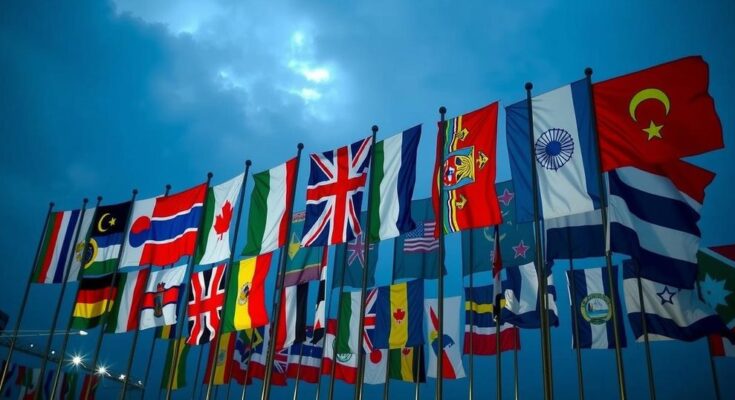On November 18, 2024, Russia vetoed a UN resolution aimed at halting hostilities in Sudan, where a conflict between rival military leaders has been ongoing since April 2023. British Foreign Secretary David Lammy criticized Russia’s action as an obstruction to peace efforts, while the humanitarian crisis in the region remains dire, with millions displaced and severe food shortages reported.
On November 18, 2024, Russia exercised its veto power at the United Nations Security Council to block a resolution that sought an immediate cessation of hostilities in Sudan, where conflict between rival military factions has persisted since April 2023. The resolution was spearheaded by Britain and Sierra Leone, and it called for both the Sudanese army and the paramilitary Rapid Support Forces (RSF) to halt hostilities and engage in negotiations aimed at establishing a national ceasefire. British Foreign Secretary David Lammy condemned Russia’s stance as a ‘disgrace’, reflecting the deepening divisions among the Security Council’s permanent members regarding global conflicts. The proposed resolution, which sought to address the humanitarian crisis emerging from the Sudan conflict—where tens of thousands have died and millions have been displaced—recognized the need for external parties to refrain from exacerbating the situation and emphasized the importance of civilian protections. Tensions between Russia and the United States have intensified following the U.S. decision to allow Ukraine to strike within Russian territory. While the U.S. representative criticized Russia for obstructing efforts to alleviate suffering, Moscow’s deputy UN ambassador Dmitry Polyanskiy dismissed the resolution as biased, suggesting the influence of Western colonial attitudes. Despite previous abstentions on Sudan resolutions, Russia appears to be aligning more closely with the Sudanese army’s leadership amid this escalating conflict.
The ongoing conflict in Sudan is primarily rooted in a power struggle between General Abdel Fattah Al Burhan, the head of the regular Sudanese army, and General Mohamed Hamdan Daglo, leader of the Rapid Support Forces (RSF). This military confrontation erupted in April 2023 and has resulted in widespread violence, human rights abuses, and a severe humanitarian crisis, with reports documenting tens of thousands of deaths and mass displacements. As the conflict escalates, international attempts to mediate and achieve a ceasefire have encountered significant challenges due to geopolitical tensions, particularly the rivalry between Western nations and Russia.
Ultimately, Russia’s veto underscores the persistent divisions within the UN Security Council, particularly regarding cohesive responses to crises in regions like Sudan. The blocking of the ceasefire resolution not only reflects the complexities of international diplomacy but also highlights the dire humanitarian ramifications of the protracted conflict. The ongoing violence in Sudan continues to produce a devastating impact on civilian populations, calling for urgent global attention and action.
Original Source: www.jordantimes.com




